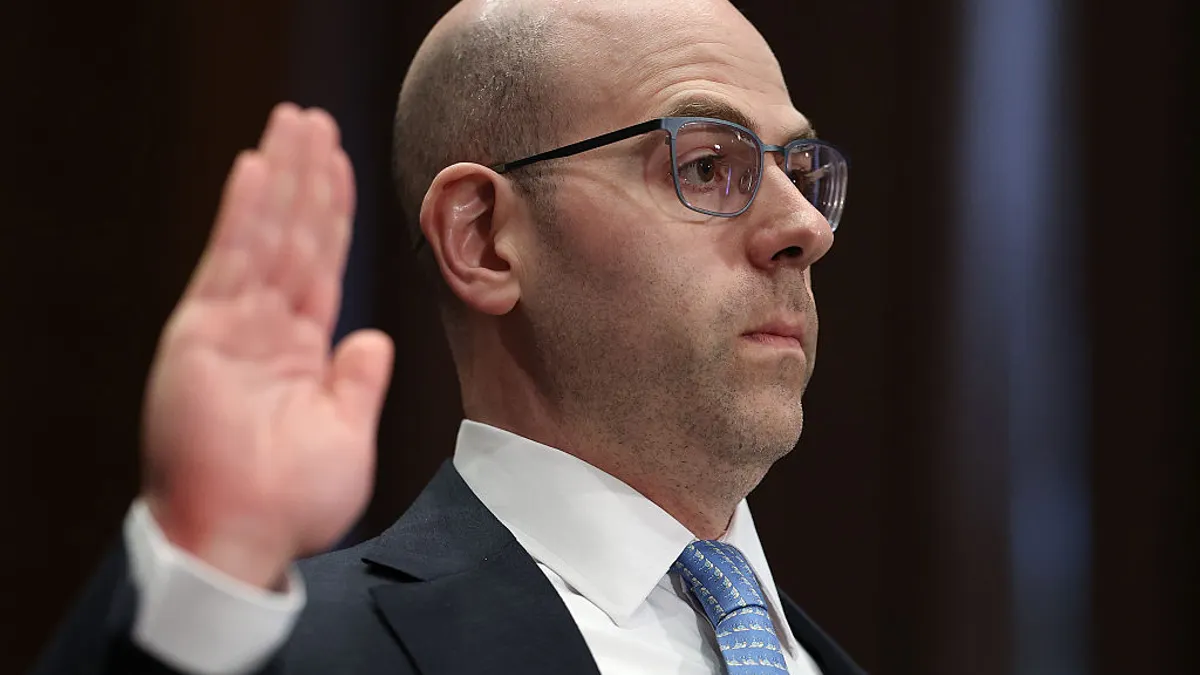The collapse of Silicon Valley Bank Friday rattled markets and sent finance leaders at both private and public companies scrambling to assess their exposure to the developing banking turmoil over the weekend.
“It’s probably the biggest business story for CFOs since COVID,” said Jack McCullough, president and founder of the CFO Leadership Council, noting that members of his group may be more directly affected because many of them are smaller growth companies.
The council, whose members include a number of Silicon Valley Bank customers, held an emergency meeting Friday to give executives the chance to trade insights and information, focused in part on those who banked with SVB and needed to make payroll and fund other operations.
The subsequent decision by the Federal Deposit Insurance Corporation to protect all depositors of the former SVB has relieved some of the tension in the system. However, the leadership council was poised to hold another meeting Monday afternoon, according to McCullough.
Friday’s SVB closure sparked broader concerns about bank liquidity that were fanned further Sunday when regulators closed Signature Bank. New York’s Department of Financial Services closed Signature “to protect depositors” and appointed the FDIC as the bank’s receiver, according to Industry Dive sister publication Banking Dive. Signature’s collapse marked the third-largest bank failure in U.S. history after SVB.
Many finance executives that had ties to SVB scrambled through the weekend to assess the level of risk that those links posed — and to communicate them to their investors or shareholders.
For example, San Jose, Calif.-based Roku CFO Steve Louden signed off on a Securities and Exchange Commission filing Friday which stated that the company had total cash and cash equivalents of about $1.9 billion with approximately $487 million held at SVB, representing about 26% of the company’s cash and cash equivalents balance as of March 10.
“Notwithstanding the closure of SVB, the Company continues to believe that its existing cash and cash equivalents balance and cash flow from operations will be sufficient to meet its working capital, capital expenditures, and material cash requirements from known contractual obligations for the next twelve months and beyond,” the filing states.
Meanwhile Columbus, Ohio-based Root Inc., parent of Root Insurance, in a Saturday press release stated that it was “not materially impacted” by SVB’s closure even though it has approximately $1.3 million on deposit with SVB.
“The Company considers its own banking exposure to any liquidity concern at SVB as immaterial to the Company’s cash position. The Company plans to transfer its funds from SVB at the earliest opportunity,” the release stated.
Even CFOs of firms that had no ties to SVB have been busy fielding and answering calls from investors and shareholders who wanted to confirm the lack of exposure and get feedback.
For example, Reed Malleck, the CFO of the Boston-based biotech firm Ratio Therapeutics, characterized SVB’s closure Friday as “crazy big news” for a finance person even though his firm does not bank with SVB or have any exposure.
“We were asked right away by our shareholders, ‘do we have exposure to SVB,’” Malleck said in an interview. He followed the developments over the weekend and prepared to address the matter with his CEO and legal counsel at a standing Monday morning meeting.
Still, while Malleck thinks the regulators’ decisions has averted a crisis for now, he does believe that the closing of SVB and Signature Bank is a loss for many companies as bank consolidation means fewer options for borrowers. SVB offered smaller growing companies the financing that some larger banks wouldn’t and also paid higher than typical interest rates on deposits, he said. For now though, he says the short-term crisis appears to have been averted.
“I would give regulators a C-minus for missing the signals that were pointing to this liquidity crisis for regional banks and an A for their response that calmed everybody down this morning,” Malleck said.























